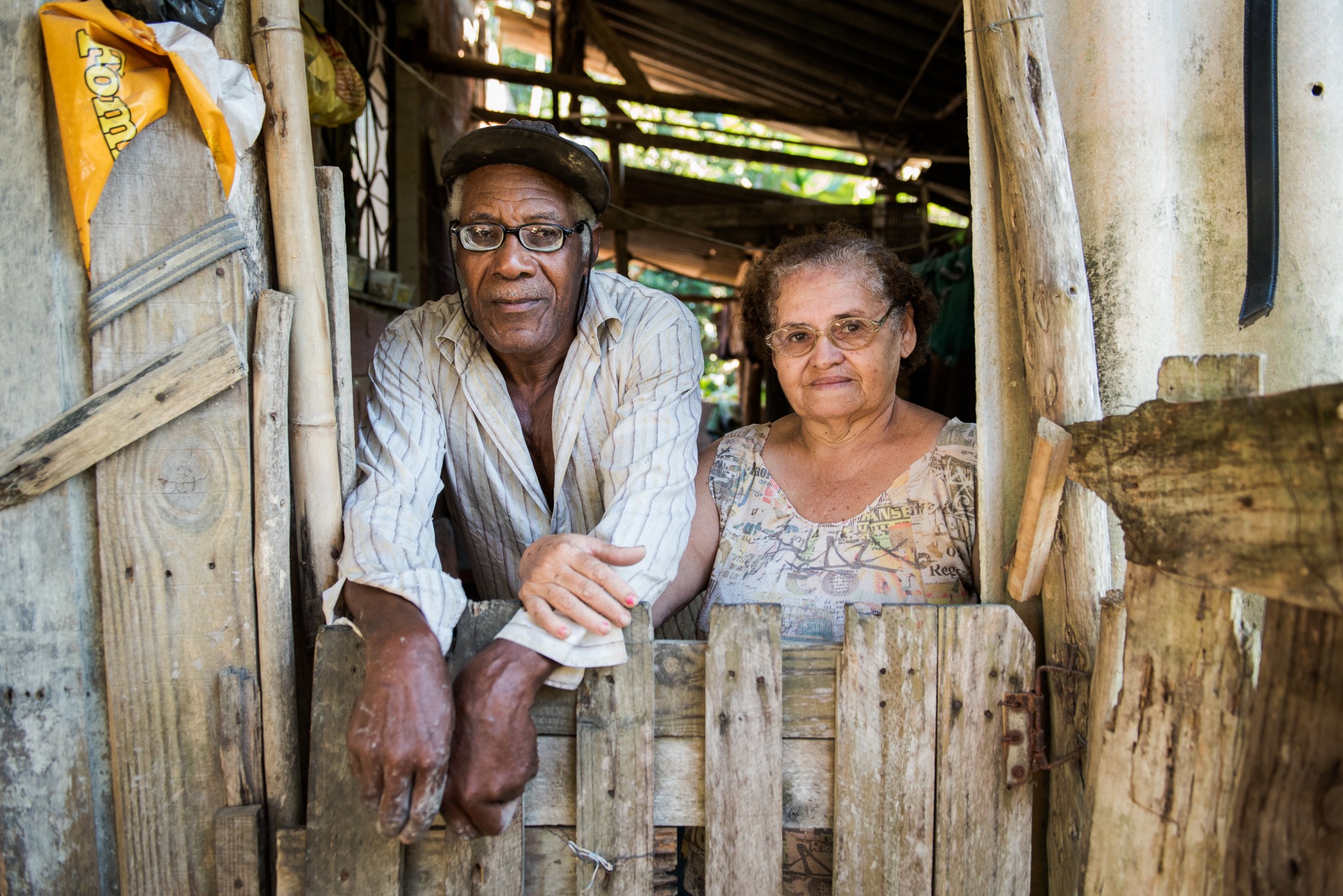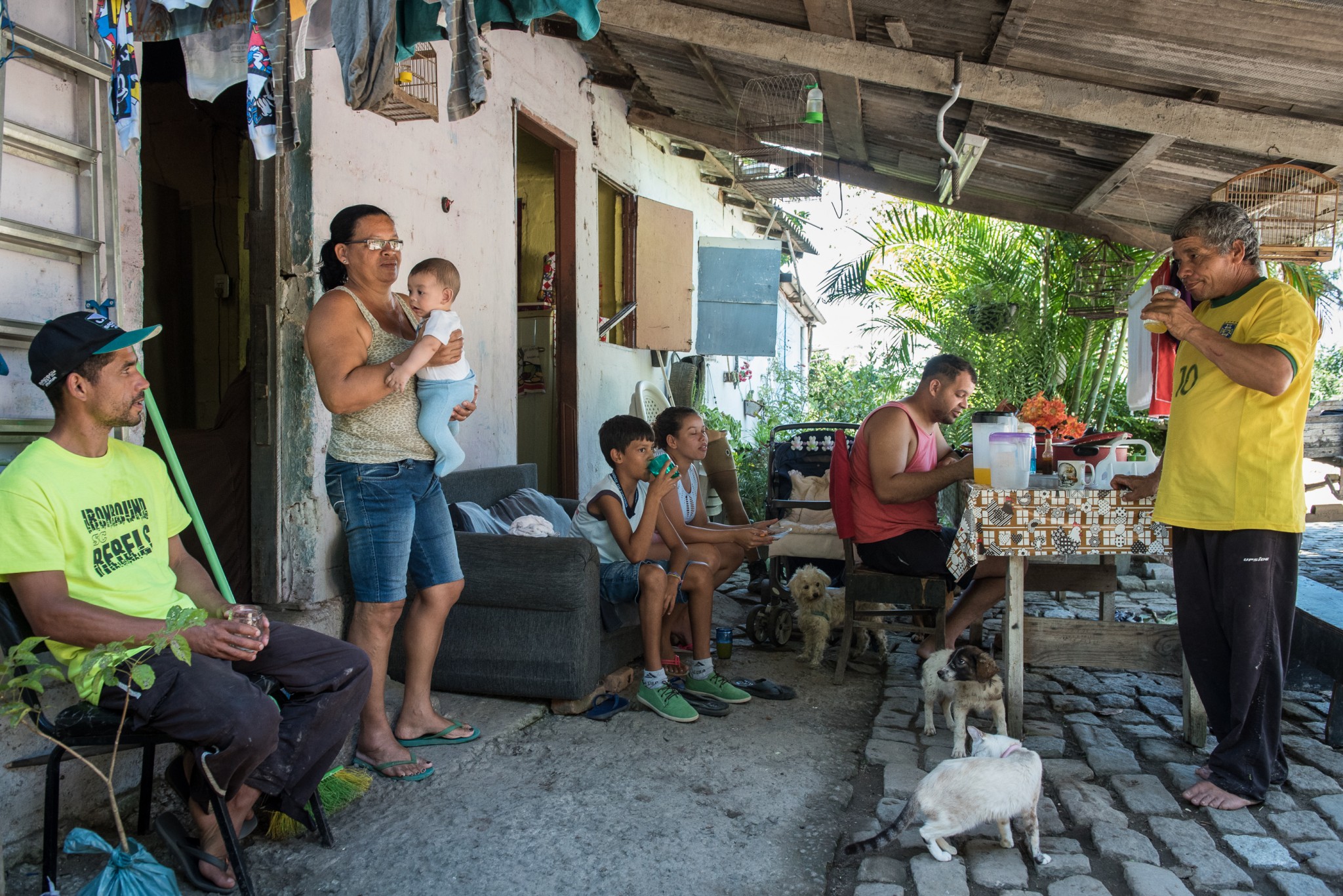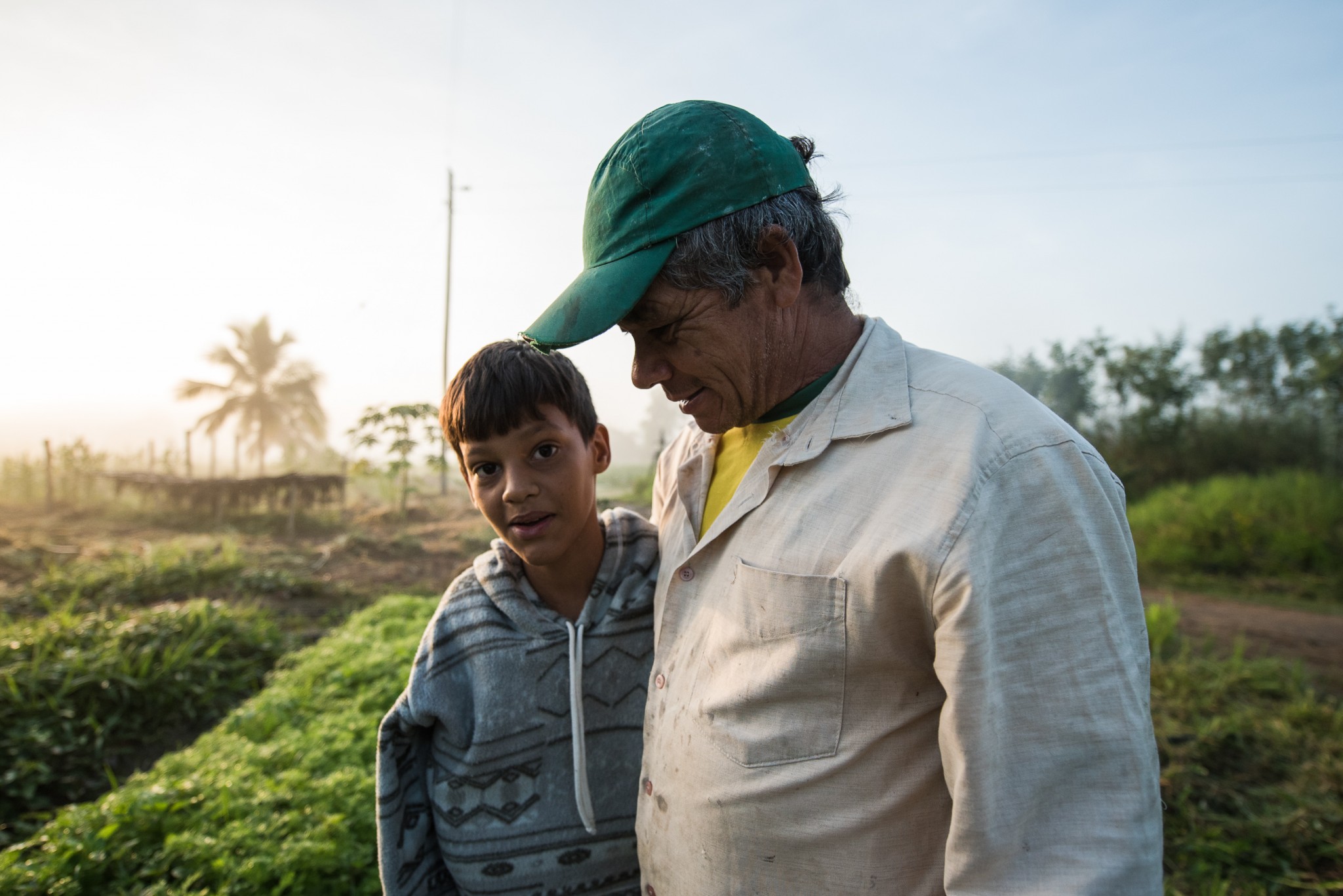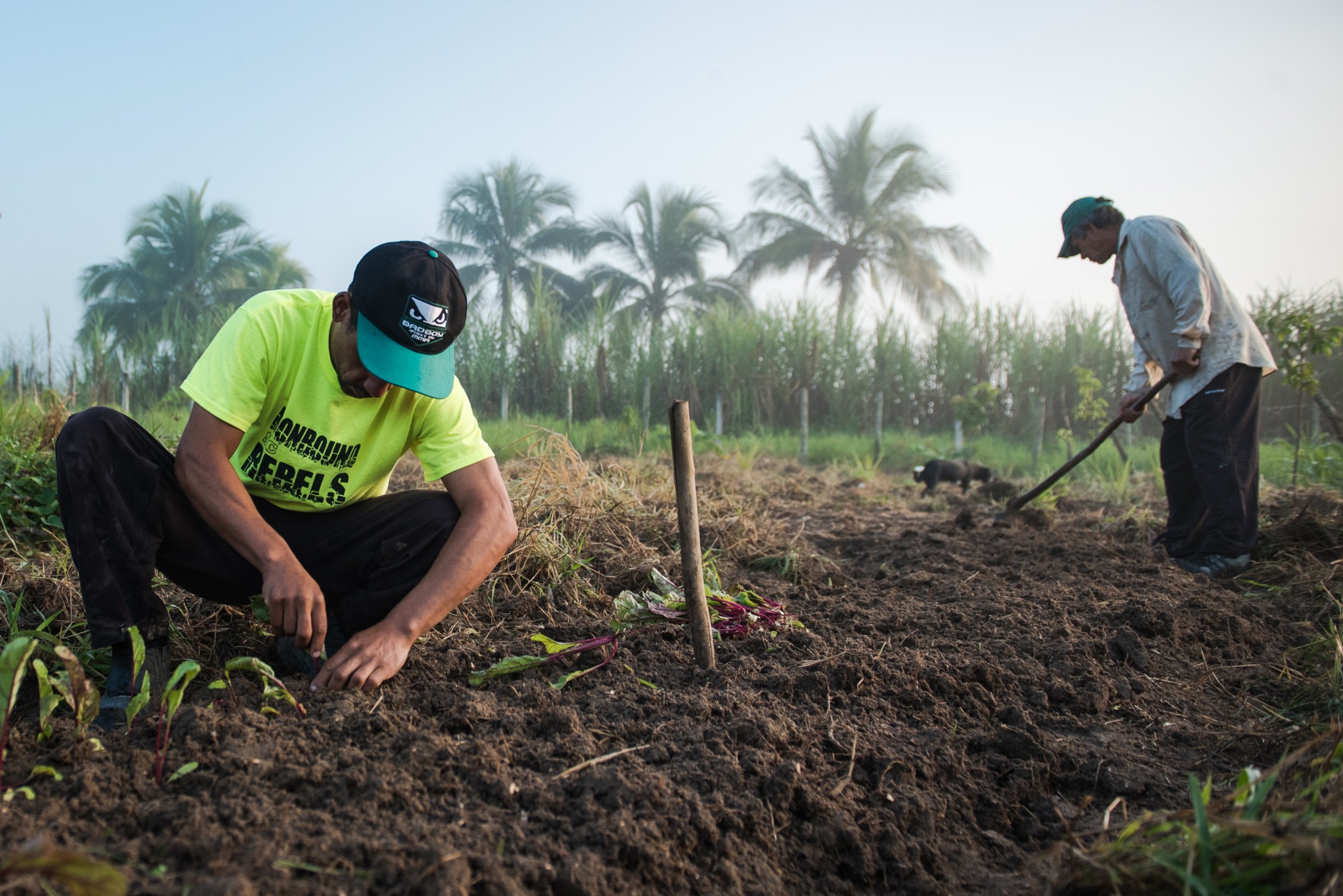Ensure sustainable water preservation while answering the growing demand from the urban market. The Livelihoods-Caruanas project, launched in 2018 in Tinguá, in the north of Rio de Janeiro metropolis combines both. Because water quality depends on sustainable farming. But at the same time, growing urbanisation threatens the biodiversity of rural areas. How can we conciliate the interests of cities with those or rural areas?
To answer this, the Livelihoods Fund for Family Farming, Bonafont (Danone’s brand that operates the bottling factory of Tinguá) and SEBRAE (the Brazilian SMEs development agency) meet up to create, in the long run, the biggest production hub of organic fruits and vegetables in Rio. The project relies on an innovative investment model with encouraging results. It could inspire other cities to adopt short-circuit food supply.
Sustainable water quality conservation: a priority for Bonafont’s factory in Tinguá
Mineral water conservation is what initiated the Livelihoods-Caruanas project. In Brazil, the water extracted from natural resources is the same one that is bottled. The highest quality standards must be respected during the extraction, bottling, transportation. Every 3 years, a public organ checks each accredited source. At the very beginning of the production chain and prior to the bottling process, water purity is the essential criteria that determines the final product’s quality. If a water source has any quality issue, the factory could close.
Today, the major part of Tingua’s watershed is protected within a natural reserve, where the plant already extracts high quality water. With Livelihoods-Caruanas project our goal is to make sure the situation persists sustainably.
In the city of Rio: growing demand for organic products
Sustainable organic farming practices are necessary to preserve water quality in rural areas. And at the same time, sprawling urbanisation and accelerated population growth result in a growing demand for organic fruits and vegetables.
The rural and the urban areas need each other. The city depends its rural landscapes for food and water. But urbanisation threatens the biodiversity of rural areas while unsustainable farming practices alter the capacity of rural landscapes to provide the city’s needs.
In Tinguá, two-thirds of the area are correctly preserved within a Biological Reserve. But the lower third of the area is not protected under such standards, suffers from bad connexion to the city, lack of agricultural knowledge and serious disinvestment among the younger population that doesn’t work on the lands. Livelihoods-Caruanas helps the smallholders combine organic farming practices and increased revenues.
The private and the public sector team up
To succeed its long-term implementation, Livelihoods-Caruanas relies on an innovative investment model and the coalition of players with complementary means and interests. The Livelihoods-Funds for Family Agriculture provides upfront financing to empower the farmers with technical training and equipment: an agroecology kit that helps them convert to organic farming. The 30-month training curriculum includes individual consultancy and team workshops to encourage mutual support.
The Livelihoods-Fund for Family Farming (L3F) was created by major companies committed to convert their supply chains into sustainable agricultural models on three levels at economic, environmental and social levels. The Fund has brought expertise to design the project under an 8-year-period by pre-financing operations, including the farmers’ training programme and business structuring. Bonafont will pay a feed to the fund according to the number of hectares converted to organic practices to ensure the project’s tangible results.
Bonafont therefore reduces its investment risk while benefitting from Livelihoods Funds’ expertise in project development with smallholder farmers. For Livelihoods, the project has already proven tangible results, as out of the first 50 farms that joined their project in 2018, 45 have already been certified under the Brazilian Organic Agriculture label.
In the field project monitoring is coordinated by SEBRAE, the Brazilian SMEs development agency, which finances and provides the agroecology kits to the farmers. These kits have already reached measured results in Brazil to convert to organic farming. Thanks to this agroecology methodology, equipped farmers could reach up to 60% of increased revenues. Fighting against poverty by implementing mutual help: the creation of an association that will help the farmers access bigger markets.
What is more, each farmer who is part of the project commits to reinvest part of his revenues (the equivalent of an agroecology kit) to help integrate new farmers.
Short-circuit food supply: a model that could inspire other cities
On the one hand, an expanding city with a growing demand for organic products. On the other hand, smallholder productions mainly based on mono-cropping (mainly manioc) that need to adopt organic farming and diversify their productions.
To combine both, the Livelihoods-Caruanas project commits to reach tangible results and focuses on a short-circuit food supply. This is the signed commitment between the players that will ensure monthly and annual monitoring, for 8 years. In the long run, the project will convert 250 farmers in Tinguá to adopt organic farming practices and access the urban market.
The project therefore generates benefits for all stakeholders: improved revenues for farmers, short-circuit and organic products for the city of Rio, long-term resilience of Bonafont’s activity, healthy food and preserved water resources for the people living around the factory of Tinguá.
Photos: Louis Perrin/ Livelihoods Funds.
Read also:
Water preservation and fight against poverty: Livelihood’s bet in Rio
How can we sustainably preserve water quality, while securing increased revenues for farmers?
Launched in 2018 by the Livelihoods Funds for Family Farming (L3F), Bonafont-Danone and SEBRAE (the Brazilian SMEs development agency) the Livelihoods-Caruanas project takes up the challenge. The project’s goal is to secure safe land use to preserve the water resources of Tinguá, while converting the smallholders adopt organic farming to access the urban market. One year after its launch, the project is already promising.
Read more
INTERVIEW : Join forces to preserve water in Brazil
The project relies on an innovative financial model thanks to the coalition of players with complementary interests to combine water preservation, organic farming and higher revenues for the farmers.
Which learnings from Tinguá experience?
The Livelihoods-Caruanas project in Rio de Janeiro is still recent, but we can already observe a 4 main key learnings, given the dynamics of the project.






